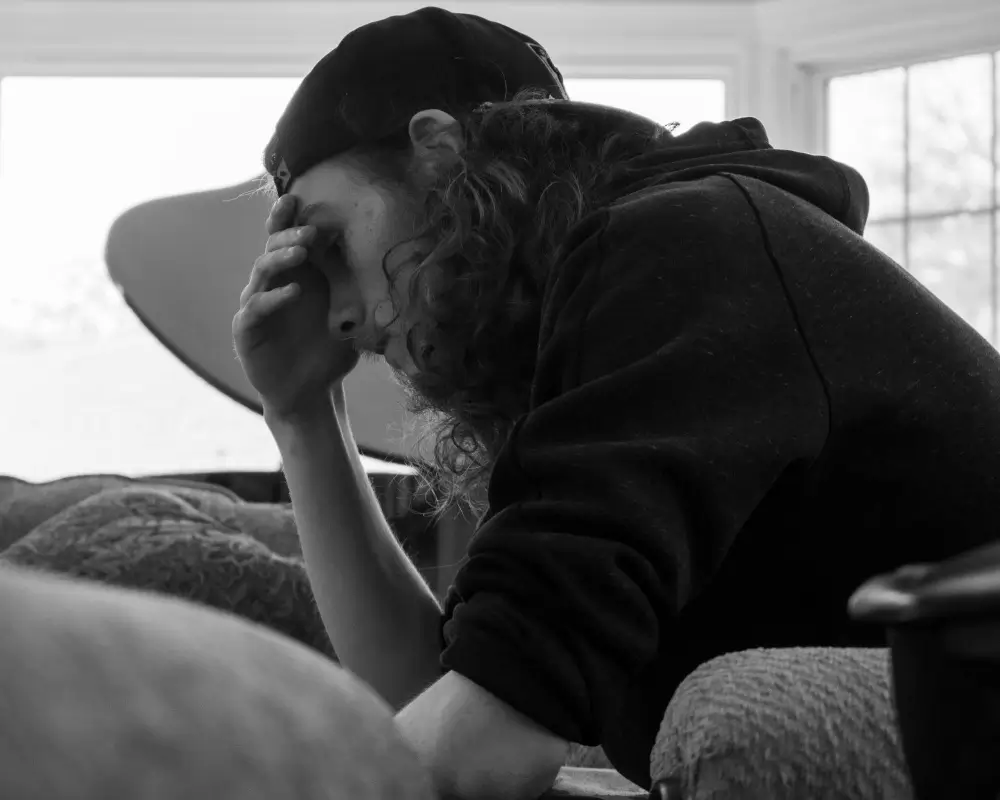
Updated May 2024 By: Sara Sorenson, LCMHC
Let’s be real, talking about depression can be scary. Tapping into our vulnerable side and sharing with others about such a personal issue can feel embarrassing or shameful for a number of reasons including social stigma, family culture and lack of psychoeducation.
Thankfully, this long-time taboo topic is becoming much easier to talk about with new research and less social stigma.
Depression is one of the most common mental health problems in the US and has only increased after COVID, affecting nearly 21 million adults in the United States. Why not have more open conversations around it?
Repressing emotions and avoiding support can lead to further isolation and loneliness, continuing the cycle of depression. Educating yourself on the topic can be a first good step to help deal with feelings of shame, make it easier to open-up to loved ones and reach out for help.
For decades, due to lack of research, depression has often been referred to in the media as “feeling sad”. We now know with the advancement of neuroscience it is much more than just a “low mood” or “negative mindset”.
Depression can be a symptom of an underlying mental health condition, or a diagnosed psychological problem such as Major Depressive Disorder. The main influences at play that can cause depression:
The biology of depression is still a growing field but Harvard School of Medicine has recently broken stereotypes that depression is simply a “lack of one chemical in the brain”. Their emerging research has found that nerve cell growth, communications between the nerve circuits and connections can play a large role in depression.
Depression goes past the point of just “feeling sad”. Some people with depression describe it as a “battle zone in their minds”. Periods of sadness are frequent, intense and can be accompanied by a number of other symptoms including:
Once you have an understanding of depression yourself, you can more easily share some personal ways of how it has impacted your life in a conversation with a loved one. Write them down in a journal if you need to.
Maybe it’s the reason you have had no energy to meet with friends or clean the house. You could talk about how you no longer enjoy doing the things you used to love. Being honest with your loved ones is the easiest way to connect with them about how you´re feeling.
People tend to be more understanding and supportive when they are given an honest explanation. Be honest about your symptoms. You could mention how it’s been hard to get out of bed, that you have crying outbursts, even suicidal thoughts, or any other symptoms you’ve been experiencing.
Although the intention isn’t meant to be hurtful, some loved ones with no experience of depression may give you responses that further stigmatize the condition. You may have heard a few of these below:
These are long-running misconceptions about depression. There is no “simply snapping out of it”. You can explain to them how depression feels like a constant battle. And that even the basic functions of daily life are exhausting, and that you are trying your best to get through it.
Sometimes the people closest to us have the hardest time understanding why we are depressed. You may be met with the classic “You have a great life! What are you depressed about?”
Depression is not black and white, and you don’t always have to have a “reason”. Oftentimes, these kinds of reactions only cause people with depression to keep to themselves, furthering the problem.
Reaching out for support is one of the most important first steps you can do to improve your depression and overall well being. It doesn’t make you a failure or “weak minded”.
If you are frequently feeling sad or experiencing other symptoms of depression, consider reaching out to your primary care doctor, a trusted friend or your local mental health center for help.
Treatment is effective for depression. The approaches below can help manage symptoms to take the burden off going through depression alone.
A variety of therapeutic treatments exist to help manage symptoms of depression. Cognitive behavioral therapy (CBT) is an evidence-based treatment that can help you explore the root causes of your depression, reframe negative thoughts, help with goals and provide a toolbox of healthy coping strategies.
Antidepressant medications (SSRIs) prescribed by either your primary care doctor or a psychiatrist are effective in managing a number of symptoms of depression including sleep troubles, problems with appetite, and low mood.
Experiential therapies are a great way to connect with the senses, boost self-esteem and improve general wellbeing. These may include art therapy, dance, roleplay, yoga and meditation.
If you are feeling isolated or met with a lack of understanding from loved ones, support groups can be a great no shame zone to connect with others who may have shared similar struggles of depression.
Corner Canyon Health Centers offers residential treatment for depression with our compassionate team of licensed therapists. Reach out to our admissions team and one of our qualified counselors is here to help you.
What Causes Depression? 2022. Harvard Medical School. January 10, 2022.
National Health Statistics Report Feelings of Depression Among Adults 18 and Older. 2024. CDC. February 15, 2024.
